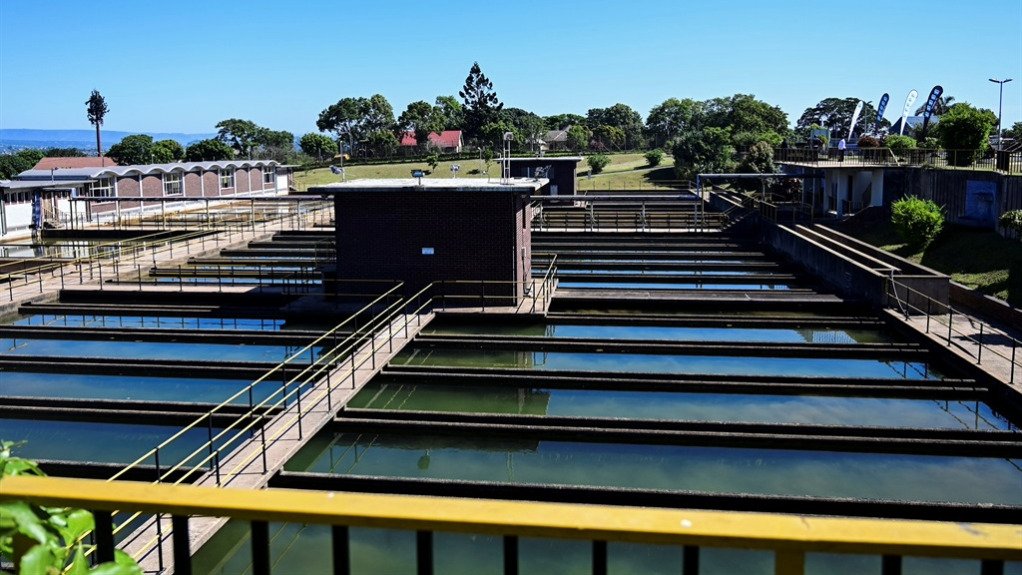Unconsidered factors affecting water infrastructure



DEAN MURUVEN Given that water is a human right, it should be inexpensive, but people should also have an incentive to conserve it
Photo by Boston Consulting Group
EFFECTIVE WATER MANAGEMENT In order for there to be effective water management there needs to be involvement of a diverse stakeholders including the private sector, local communities and civil society
Photo by Boston Consulting Group
When discussing South Africa’s water crisis, three considerations – namely history, the leveraging of technology and innovation, and the lack of a ‘strategic priority’ status – are often ignored, said global consulting firm Boston Consulting Group associate director Dean Muruven.
In his piece titled ‘At the Brink: South Africa’s Urgent Battle Against Water Scarcity’, he noted that the first factor relates to the fact that the effects of the Apartheid era still have a significant role in how water is supplied and distributed in different parts of the country, even if the country would like to believe otherwise.
He cited the example of the Western Cape, where, from a governance perspective, municipalities outperform those in most other provinces. “Without detracting the performance of these municipalities, it should be remembered that the Western Cape has no history of homelands.”
Homelands were areas established by the Apartheid government to which most of the black population were moved, with little in the way of economic development. Consequently, with the introduction of the new administration post 1994, people living in homelands, who received minimal municipal services, needed to be brought into the system.
“The point is that building a resilient water system in South Africa must be accompanied by the creation of a social resilience,” said Muruven.
“If we do not consider this perspective, we risk continuing to design systems for people instead of with them, which will not yield the desired results.”
Strategic Priority
The second factor that goes unconsidered is that water must become a strategic priority for both the public and private sectors. Muruven pointed out that, around the world, “fresh water has always been used, valued, and governed as if it were an inexhaustible commodity” – a reality that must change.
Further, he commented that one of the myths that must be debunked is that governments alone are responsible for providing resilient water supplies.
He averred that, while governments play a critical role in providing leadership and regulations to ensure the adequate, equitable and sustainable management of water resources, effective water management requires the involvement of diverse stakeholders including the private sector, local communities and civil society.
“The private sector depends on water to transport goods over rivers, as a key ingredient for beverages, or as an input for agriculture, but it is doing very little to help in tackling supply,” warned Muruven.
He cited the 2023 United Nations Water Conference – the first in almost 50 years – which attracted an estimated 9% in new commitments from companies, illustrating of the private sector’s lack of interest.
Another myth Muruven hoped to dispel is that water should be free to everyone.
The South African Constitution recognises access to adequate water as a fundamental human right – one that is critical to health, dignity, and prosperity. However, this should not imply that water is free or that access should be limitless, says Muruven, adding that to realise blended finance to attract much-needed private investment into the water sector, governments must send effective market signals by pricing water correctly.
“Water pricing calls for a complex balance between equity and efficiency. Given that water is a human right, it should be inexpensive, but people should also have an incentive to conserve it,” he explained.
He stressed that a meaningful debate must take place on socially equitable water pricing, noting that market-based mechanisms, adaptive pricing, and other policies could promote conservation and stimulate sufficient financing while meeting the needs of vulnerable populations.
Leveraging Technology & Innovation
The third factor, according to Muruven, is the implementation of technology and innovation, as it will provide the tools for a water- resilient future, across the water value chain.
He explained that it can play a role in collecting water, monitoring, and forecasting flows, distributing water effectively, using it efficiently, lowering the cost of recycled water, and protecting against water-related hazards.
Muruven pointed out that the South African Water Research Commission (WRC) in Pretoria has, over the years, developed several solutions that could be deployed and scaled to address some of the country’s most pressing water needs.
Additionally, the South African Sanitation Technology Enterprise Programme has tested innovative sanitation technology that can be deployed across the country. He noted that all that is needed is the acceleration of the innovation cycle and the creation of an enabling environment to ensure implementation and scale.
Muruven elaborated that a critical application for technology is to help governments plan for an uncertain future in the changing climate.
“As floods and droughts [intensify], AI can help governments model the costs of different adaptation and resilience measures. This allows for strategic infrastructure planning, data-driven decision-making around water allocation, socially equitable pricing and data integration across government institutions.”
Water Resilience
Muruven emphasised that South Africa’s water crisis cannot be solved through purely a financial or engineered approach, as water is dependent on natural ecosystems.
Therefore, he suggested that, as the country plans for the future, it factors interconnected freshwater environments and nature-based solutions into developments to ensure water system resilience.
Muruven concluded that, “unless we acknowledge that water resilience and social resilience are two sides of the same coin, we will continue a vicious cycle of water insecurity and the water crisis will appear unsolvable”.
Article Enquiry
Email Article
Save Article
Feedback
To advertise email advertising@creamermedia.co.za or click here
Announcements
What's On
Subscribe to improve your user experience...
Option 1 (equivalent of R125 a month):
Receive a weekly copy of Creamer Media's Engineering News & Mining Weekly magazine
(print copy for those in South Africa and e-magazine for those outside of South Africa)
Receive daily email newsletters
Access to full search results
Access archive of magazine back copies
Access to Projects in Progress
Access to ONE Research Report of your choice in PDF format
Option 2 (equivalent of R375 a month):
All benefits from Option 1
PLUS
Access to Creamer Media's Research Channel Africa for ALL Research Reports, in PDF format, on various industrial and mining sectors
including Electricity; Water; Energy Transition; Hydrogen; Roads, Rail and Ports; Coal; Gold; Platinum; Battery Metals; etc.
Already a subscriber?
Forgotten your password?
Receive weekly copy of Creamer Media's Engineering News & Mining Weekly magazine (print copy for those in South Africa and e-magazine for those outside of South Africa)
➕
Recieve daily email newsletters
➕
Access to full search results
➕
Access archive of magazine back copies
➕
Access to Projects in Progress
➕
Access to ONE Research Report of your choice in PDF format
RESEARCH CHANNEL AFRICA
R4500 (equivalent of R375 a month)
SUBSCRIBEAll benefits from Option 1
➕
Access to Creamer Media's Research Channel Africa for ALL Research Reports on various industrial and mining sectors, in PDF format, including on:
Electricity
➕
Water
➕
Energy Transition
➕
Hydrogen
➕
Roads, Rail and Ports
➕
Coal
➕
Gold
➕
Platinum
➕
Battery Metals
➕
etc.
Receive all benefits from Option 1 or Option 2 delivered to numerous people at your company
➕
Multiple User names and Passwords for simultaneous log-ins
➕
Intranet integration access to all in your organisation




















